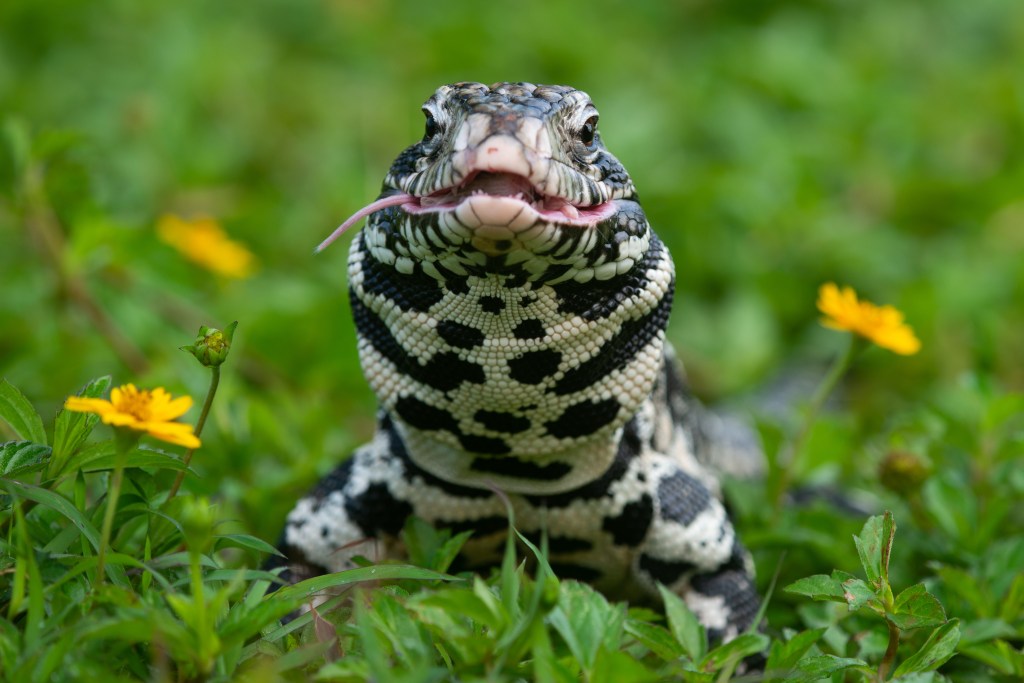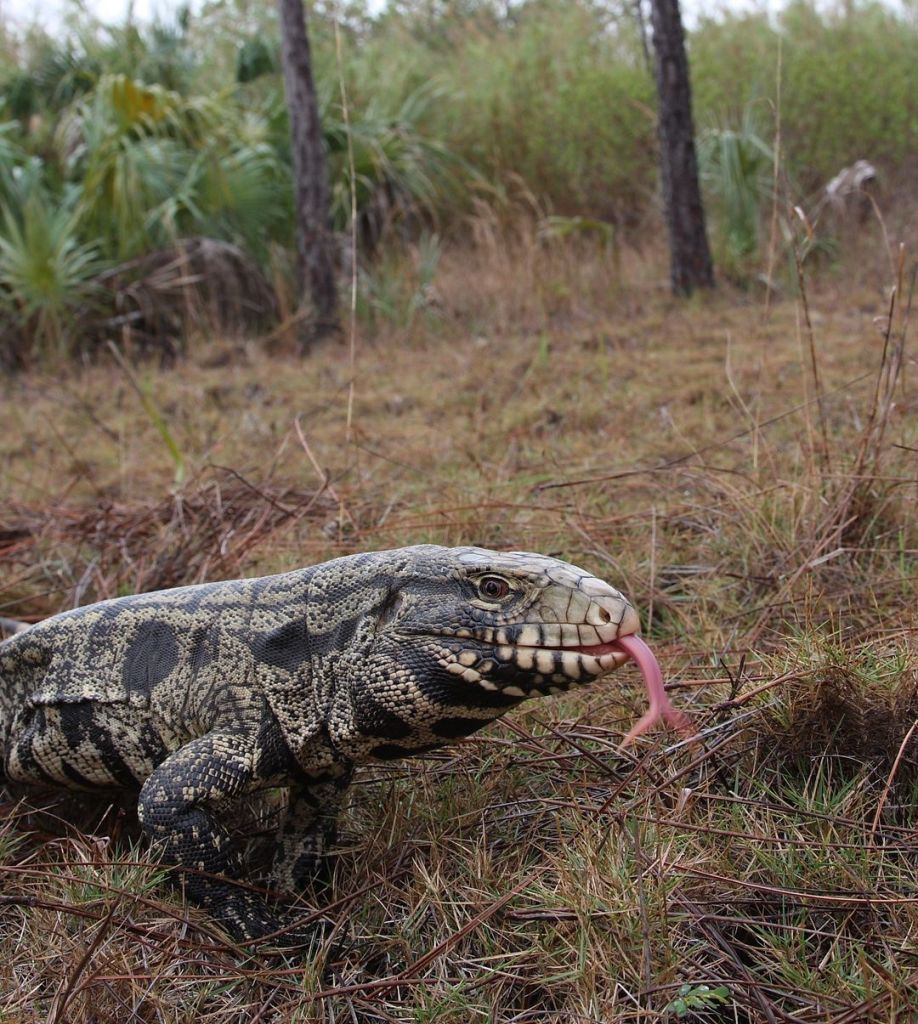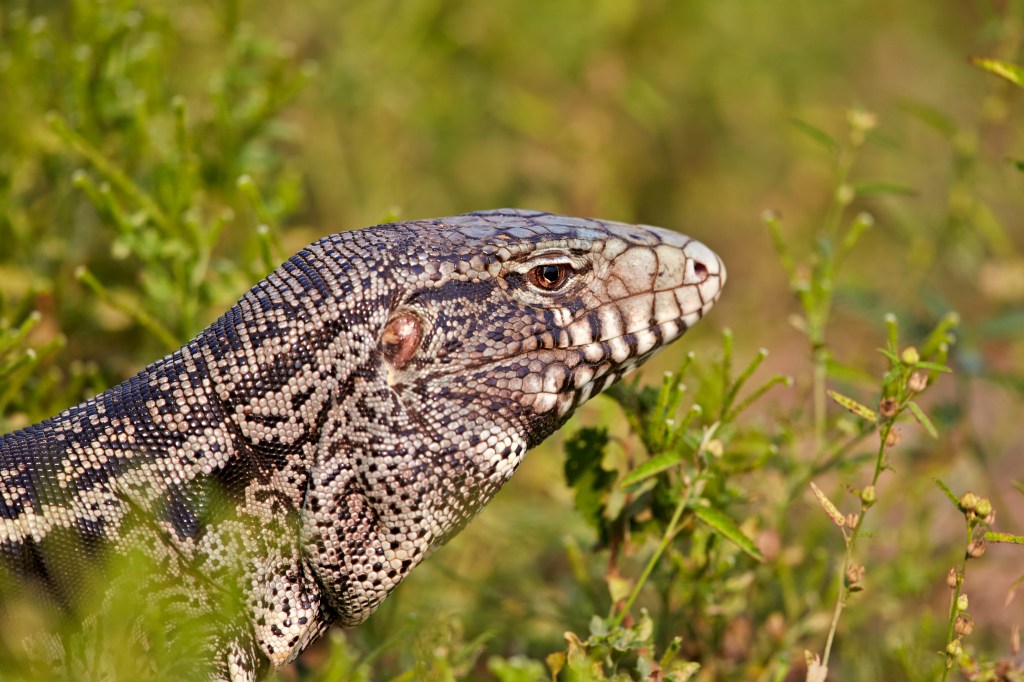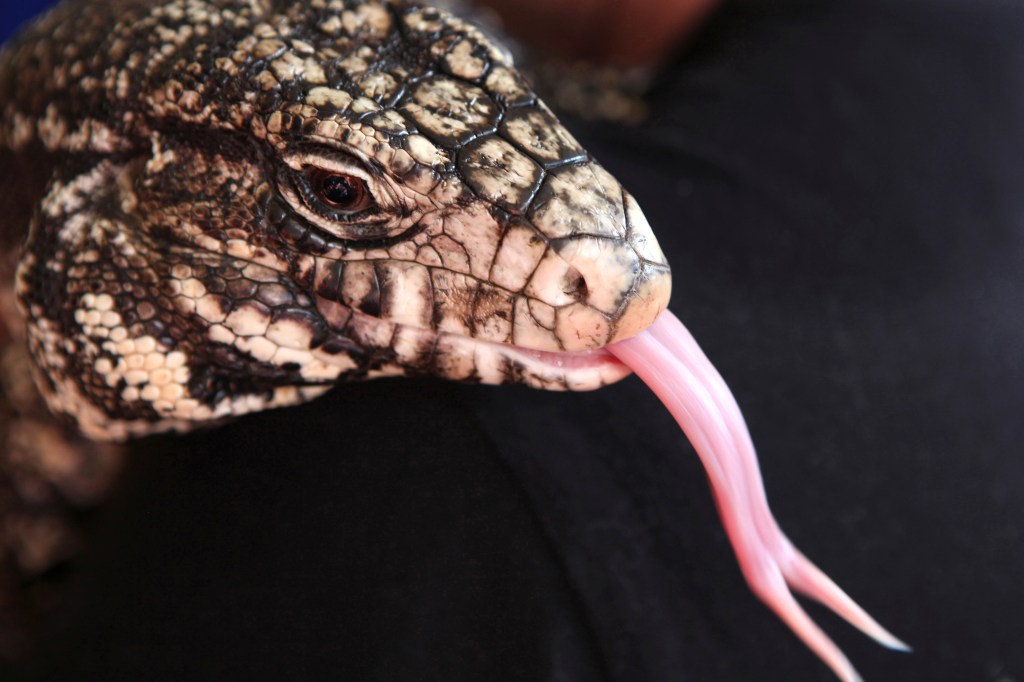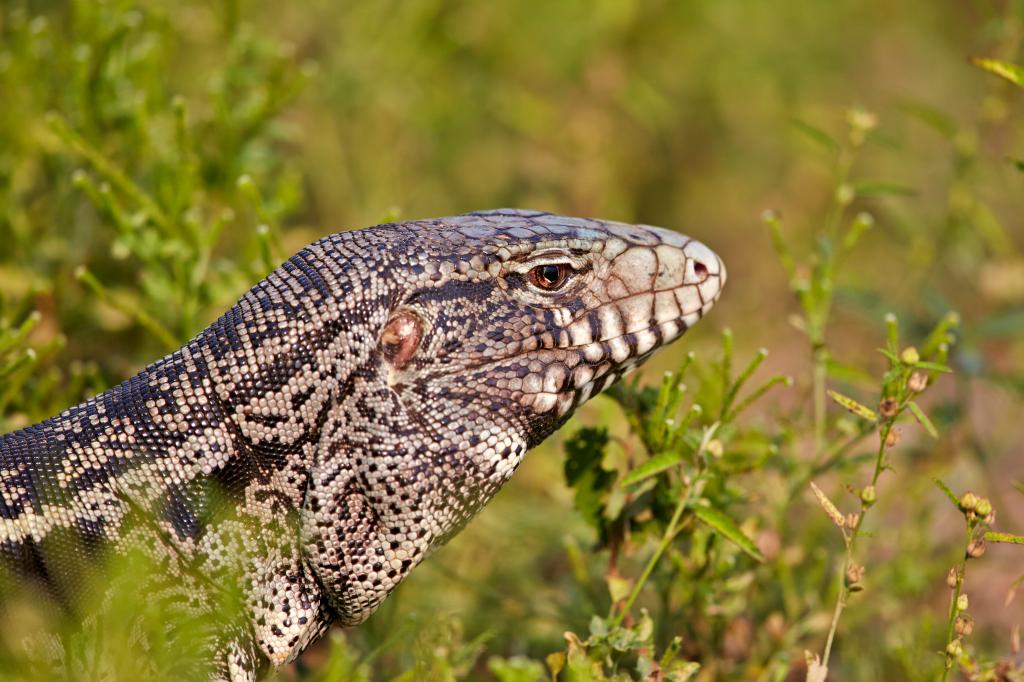Invasive and illegal dog-size lizards cause chaos in South Carolina: photos
Over 100 invasive lizards the size of dogs have been reported throughout South Carolina and are destroying the local ecosystem, including killing endangered species.
The Argentine black and white tegu has been causing havoc throughout the American South since it was first spotted in 2020.
The lizard can grow up to 4 feet long and is distinguished by its spotted scales and voracious appetite: Scientists say it eats just about everything in sight.
In the four years since its first sighting, the lizard has spread all the way to the Charleston mountains and Midlands in South Carolina.
However, state herpetologist Andrew Grosse said Friday there is so far no evidence that the lizards have been breeding, as reported by the State.
The lizards are primarily known for being kept as pets, with nearly 79,000 imported to the United States from 2000 to 2010 alone.
Many of the ones originally spotted in 2020 were either released or had escaped from captivity.
Since 2020, the South Carolina Department of Natural Resources has confirmed 32 sightings across 17 counties, Grosse said. Twenty-nine of these were the black and white tegu.
The SCDNR has received a total of 114 reported sightings across 27 counties, but has only been able to confirm those that provided a photo or resulted in the lizard’s capture, Grosse said.
The state banned the black and white tegu over Memorial Day weekend in 2021. Anyone who already had a tegu as a pet was permitted to keep it so long as they registered it with the SCDNR, but couldn’t breed it or bring more into the state.
The ban, however, has apparently not been enough to stop their spread. The loose lizards have started to tear through the local ecosystem.
Experts have theorized that tegu owners are releasing them into the wild after they grow too large to manage, as reported by the Daily Mail.
The omnivore is not a picky eater and has gone after eggs, pet food, and even species endangered in the Palmetto State like grasshoppers and young gopher tortoises.
The SCDNR has encouraged anyone who spots a tegu to contact the agency immediately and to send a photo if possible.
Residents are allowed to shoot the invasive reptile if spotted, but only if it is legal in their area.
The tegu is resilient and can withstand most cold weather thanks to its ability to raise its internal body temperature 50 degrees higher than the current climate.
The lizards are also set to brumate (mammals hibernate, reptiles brumate) soon, which makes them immobile for weeks as colder winter weather hits.








